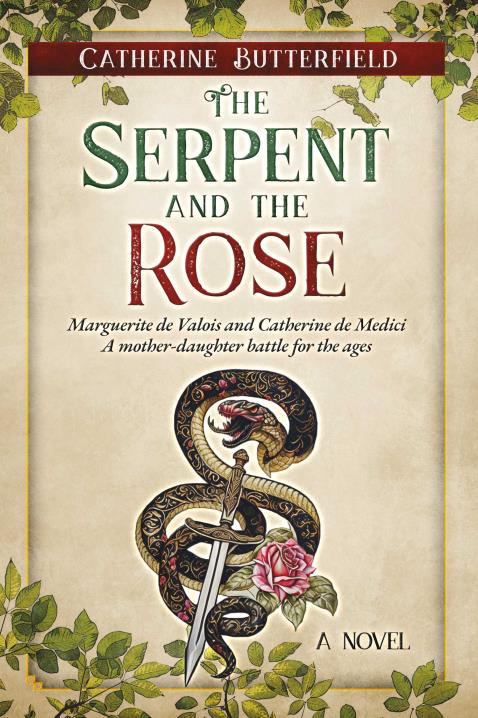Quarterfinalist - Booklife Prize
"Spotless prose, deeply thoughtful character studies... Breathtakingly real.... Marguerite is a powerhouse from the start, stunning in her intensity and relatability."
5 Star Award - Historical Fiction Company
"...a captivating tale that skillfully weaves together historical, dramatic and personal elements. Catherine Butterfield brings to life a fascinating period in French history and paints a complex and memorable portrait of Queen Marguerite de Valois."
The Serpent and the Rose
In 16th century France, Marguerite de Valois is growing up in one of Europe's most dysfunctional families - the Medici clan, whose extreme inbreeding has led to an alarming number of genetic defects in France's kings. Her mother, Queen Catherine de Medici has taken note of Marguerite's uncharacteristic beauty and intelligence. In a scheme to unite the country during the raging religious wars, she opts to marry off her Catholic daughter to the Huguenot Henri, King of Navarre, a charming but faithless philanderer. From that moment on, Marguerite's life changes forever.
Inspired by the memoirs of Marguerite de Valois (she was the first woman to write and publish her memoirs.) Liberties were taken, but the heart of the story is true.
This book is on Amazon, but why give your $ to Jeff Bezos? Click here to buy directly from the publisher!
Kirkus Reviews -- "GET IT"
"... a sweeping but intimate story that highlights the author's clear attention to detail.....Over the course of the novel, Butterfield employs diary-style from Marguerite's perspective that make for a brisk read, and Marguerite, despite her royal background, comes off as approachable and very human throughout."
France in the late sixteenth century was being destroyed from within by the internal wars between the Catholics and the Huguenots. The printing press was an active tool for fomenting hatred and kindling fears between the two religions, to the point where neighbor was killing neighbor in the name of saving their country. Southern France was where the Huguenots were strongest, and Paris was the center of Catholic France. When Marguerite was brought by her mother to Nérac to secure the engagement to the King of Navarre, it was hoped the act would lessen the hostilities. But hatreds ran deep, and instead Marguerite became ensnared in the brutal politics of it all for the rest of her life.
The writing of this novel was the result of a transformative period at an artists' retreat in Nérac, France, where I learned about Marguerite de Valois and her husband Henry, the King of Navarre. The couple was quite famous back in the 16th Century, Shakespeare was even inspired to write "Love's Labours Lost" about them, but somehow much of that has been lost to time. Life got complicated for the couple after their politically orchestrated marriage. Henry fought in endless religious wars, bedded seemingly every woman he met, and finally became King of France. Marguerite's life took a different and, I would argue, more interesting path. This is her story, heavily researched and told in diary form in Marguerite's progressively less-and-less naive voice.
